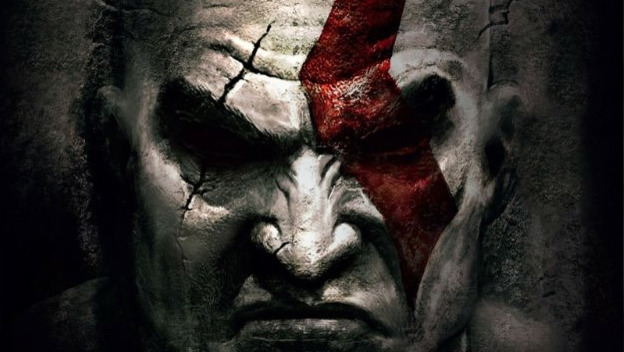Everybody’s got a price…but what’s yours for gaming?
There’s no denying it; games can be expensive. Our hobby is one full of rich experiences that you absolutely cannot find in any other form of media. The problem is, with this kind of innovation, comes a premium. I know I’m preaching to the choir when it comes to gamers having to spend their hard-earned dollars. Buying that one good game can easily knock out your disposable income for the week, maybe even the month, depending on your situation. So, given what we know about how hard it can be to keep up with an ongoing gaming habit, this can be multiplied to the 10 th power when it comes time for the launch of a new console. As of this article’s writing, we’re just weeks away from the release of the Xbox One and PlayStation 4. If you’re keeping track, that puts us in the eighth generation of consoles. Both systems will launch just a mere seven days of each other. This time ‘round, Sony has decided to make a move that will distinctly set itself apart from its competitor Microsoft, by dropping the price tag of its PS4 to $400 , which is over a hundred bucks less than the Xbox One’s Price .
So, does this kind of thing really sway people’s opinions? Is a $100 difference at the register really enough to make a difference?
I mentioned that this is generation eight of the console cycle. Now, besides reminding me just how old I am, it also brings back memories of our predecessors. Over the years, the expensive nature of consoles doesn’t seem to have been a hot-button debate. Granted, for many parents, the price tag may have seemed a bit high; for the most part, though, they’ve been pretty consistent. Believe it or not, the average console price of the earlier generations hovered right in the $200 range. It wasn’t until what many consider to be the “next-gen” that console prices started to creep upward. Of course, there are those exceptions. Take the huge debacles of both the Neo Geo and 3DO. These systems were priced so ridiculously high that only a select handful of people could own them (or wanted to). They still clock in as the most expensive consoles ever released. Nintendo, on the other hand, can’t be overlooked in its successful strategy for the Wii. Not only did Nintendo try to appeal to a broader audience by making the Wii’s controls and game style more accessible, it priced the Wii at a lowe$249, when some console bundles of the PS3 and 360 were going for as much as $600 at the time. Sony has clearly taken a page from that playbook, banking on the fact that the sticker shocker of the Xbox One, even though it’s priced on par with the previous generation’s release, will bounce folks over to the more attractively priced PS3. Even if it does feel it provides a better product, Sony is clearly making a distinct move here. Microsoft, on the hand, seems unshaken in its resolve.
To me, there seems to be one underlying problem with this philosophy. People buying consoles during the holiday season (especially buying during a holiday season centered on a console launch) typically break down into two groups: gamers buying the consoles for themselves and parents who are buying for their children who happen to be gamers. Now, let’s deal with the first group. Gamers know what they want. Consoles tend to be a polarizing factor, and even if you happen to like both companies (or even own both consoles), everyone has a favorite. There’s something to be said about the fanboy nature of consoles, where people can often times lose their objectivity just because of their love for the home team. So, is a gamer like that really going to abandon his favorite console just to save $100? After all, this could be a ten-year commitment based on the current-gen life cycle, and you’ll be married to it from now on. So, if gamers who know what they want are not swayed by a marketing strategy like this, who is its intended target? Enter group two.
As we gamers get older and start having families, we’ll eventually get to the point where we start buying consoles for our own children. Some of you are probably already there. However, there still is a section of the culture that doesn’t understand gaming on a personal level. They just know it’s what their children like. So, in an attempt to make it a holy, jolly Christmas, they go out to get their kids the newest gaming console. Don’t get me wrong, this is a noble gesture, but when those folks walk over to the shelf and see that Sony is clearly the better priced option, I can’t image explaining the merits of why their child might prefer an Xbox One will make much of a difference. Not that I’m towing the Microsoft line here. There is something to be said for Sony offering an unbelievable product like the PlayStation 4 at such a discount. With developers moving away from exclusive content, it’s hard to justify the “line in the sand” mentality that we’re used to in the console war.

So, as we inch closer to launch day for each console, have you made your pick? Do you already know which console you’ll choose? If you’re reading this article, I’m assuming it’s because gaming culture is part of your life. It’s a hobby, yes, but I’ll bet it’s probably more than just that too many of you, as it is to me.
This by no means is going to distinguish a clear winner in the ongoing console war that clearly has no real end in sight. It does, however, highlight the fact that money (while a factor) probably has very little sway on exactly what consoles we choose to love.
So, yes, money isn’t everything, but I’ll go one further; it’s probably somewhere at the bottom of the list for most of us.
